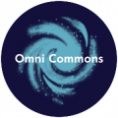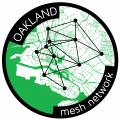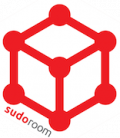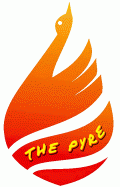|
|
I’ve been a bad blogger recently, and hardly a functional human being- this state of total liminality is both extraordinarily liberating and incredibly frustrating. I graduate on Sunday. If you would like to experience the fruits of my yearlong labors, I encourage you to check out the electronic version of my thesis, which I plan to add interactive features to in the future (I’m thinking more along the lines of a wiki than this rather average website). If you do read it, drop me a line and let me know what you think! I’m always eager to hear fresh perspectives and related stories.
A thesis submitted to the Faculty of Wesleyan University in partial fulfillment of the requirements for the degree of Master of Arts in Anthropology.
Based on five years of participant-observation on the social networking sites MySpace, Facebook, and Tribe.net, The Virtual Campfire explores the increasingly blurred boundaries between human and machine, public and private, voyeurism and exhibitionism, the history of media and our digitized future. Woven throughout are the stories and experiences of those who engage with these sites regularly and ritualistically, the generation of “digital natives” whose tales attest to the often strange and uncomfortable ways online social networking sites have come to be embedded in the everyday lives of American youth.
Last week, I finally sent in my thesis, which with appendices currently stands at 234 pages. I’ve been celebrating ever since, finally released from the constant strain I’d been under all year. The best comparison I’ve found for relating my experience is that of a marathon. I was a competitive distance runner in high school, and it would seem I transferred that competitive energy and masochistic endurance into my academic life. By “masochistic endurance,” I mean: the intentional sacrifice of the body’s needs for the sake of continually moving forward; when the brain separates from the body so as to control it, rather than being controlled by it-
ie- survival mode
Looking back, I see that the stress I put myself under, however much I rationalized the need for it, took a serious toll on my health, and ultimately affected every other realm of my life in the process. Take this blog, for example. I had all but abandoned it this past month, and for the most part it has been mostly a repository of snippets of my thesis and musings related to my research. In focusing my energies on the single-minded pursuit of one aspect of my life, I became unwell and overwhelmed.
The isolation I felt, despite the efforts of my friends and loved ones to support me, crept in during the loneliest hours- usually around dawn after spending a dozen hours at my desk. I recall searching the Web for stories of those in my position, looking for guidance and hope, or at least some solid advice on just when too much is too much. I couldn’t find a lot, but what I did find helped me immensely. Now that I’ve a clearer head, I thought I ought to do my part in returning the favor. What follows are some realizations I had to learn the hard way (damn), but maybe you won’t have to (sweet!):
One thing I realized is that staying awake for too long without pausing for rest is a huge time-waster. I would spend hours in a state of half-consciousness, struggling to put words to my increasingly scattered thoughts. Especially after 24 hours, my attention span and ability to articulate began to decline abruptly. Sleep is necessary. Your body cannot, in fact, be separated from your mind, no matter how much we wish it to be so.
I found it especially easy to rationalize such self-destructive behavior thanks to the discourse that surrounds university life. While my rational self knew I was in need of such human comforts as sleep and social activity, my competitive spirit clung to the vision fed to me through my environment and media consumption. That “vision” is in fact an irrational ideal of a superhuman superbrain. Now that I’ve stepped back from it a bit, it’s not nearly as alluring as it once was, this “success.” Success is happiness, and happiness comes about through wellness and ALLEVIATION, rather than perpetuation, of stress.
One thing that got me through during my frequent bouts of losing confidence was having mentors, in their various guises. Here I’ll take the opportunity to plug the potentially awesome benefits of this new “social web”- I was able to befriend and communicate with a variety of researchers and authors who might be considered experts, and their advice for me was enormously motivational. Inspiration and hope can be derived from even the briefest of exchanges at times. Reaching out is easier than ever.
Nevertheless, I cannot stress enough (heh) the incredible importance of grooming one another- face-to-face interaction cannot be replaced by any means. It is easy enough to become a hermit, but from my experience, we need others in order to keep it real. It is easy, also, through the process of isolation, to grow bitter of the world and to see yourself as separate and alone, a martyr. This past week has been one of reintegration; I now see that my biggest mistake this past year was neglecting so much of what makes me happy- people, especially- but I am lucky to realize now that the love had been waiting for me to return the entire time.
Writing that brought to mind the Desiderata, which I read every new year’s eve. That seems like a good note to end on- blunt simplicity.
Desiderata – Max Ehrmann
Go placidly amid the noise and the haste,
and remember what peace there may be in silence.
As far as possible, without surrender,
be on good terms with all persons.
Speak your truth quietly and clearly;
and listen to others,
even to the dull and the ignorant;
they too have their story.
Avoid loud and aggressive persons;
they are vexatious to the spirit.
If you compare yourself with others,
you may become vain or bitter,
for always there will be greater and lesser persons than yourself.
Enjoy your achievements as well as your plans.
Keep interested in your own career, however humble;
it is a real possession in the changing fortunes of time.
Exercise caution in your business affairs,
for the world is full of trickery.
But let this not blind you to what virtue there is;
many persons strive for high ideals,
and everywhere life is full of heroism.
Be yourself. Especially do not feign affection.
Neither be cynical about love,
for in the face of all aridity and disenchantment,
it is as perennial as the grass.
Take kindly the counsel of the years,
gracefully surrendering the things of youth.
Nurture strength of spirit to shield you in sudden misfortune.
But do not distress yourself with dark imaginings.
Many fears are born of fatigue and loneliness.
Beyond a wholesome discipline,
be gentle with yourself.
You are a child of the universe
no less than the trees and the stars;
you have a right to be here.
And whether or not it is clear to you,
no doubt the universe is unfolding as it should.
Therefore be at peace with God,
whatever you conceive Him to be.
And whatever your labors and aspirations,
in the noisy confusion of life,
keep peace in your soul.
With all its sham, drudgery, and broken dreams,
it is still a beautiful world.
Be cheerful. Strive to be happy.
This past month, I’ve sought to nourish myself through what is, for me, the most difficult period of the year. January. And I made it! I’m okay! And I’ve written a lot of things.
In fact, I was recently hired to join a team of bloggers, helping to create the “meat” of a pre-beta social networking site, iggli. You can check out my blog here, or by clicking on the title of this post. It’s where I’ve been writing regularly these days. Original writing, at that.
Having shaken myself free from the noxious syndrome of reading “research” and creating headers beneath which I can conveniently categorize the perspectives of others into “anxieties” and “utopias”, I have now reached what will be the butter on the bread of my thesis. That is, that which makes the dry foundation delicious. Not that ethnography is ever dry. My first chapters are rife with the stories, anecdotes, personalities, ideas that propelled me to do this research in the first place.
But now, allow me to be indulgent. I embark on a chapter I’ve hesitantly entitled “A Phenomenological Exploration of Online Social Networking.” This is where I tell my own story, where I deeply investigate my own integration of anxieties toward and utopic visions of the Internet and its potentials and failures.
And everything else.
The past week has consisted of moving into a new apartment (where I will no longer bother touchy neighbors with my entirely nocturnal rhythm and proclivity toward human interaction and [god forbid!] music), sleeping 10-12 hours a night, and battling the obvious onset of ill health with my finest vegetarian cooking, isolation, and relaxation.
I sit before the screen now resolved to put forth a testimony founded on inner truths, desires, sadnesses, attempts to bridge the increasing divide I see between individuals and community. The Internet, for me, is the “final frontier” in which we may remake ourselves, and in so doing, contribute to the remaking of this severely damaged world.
Though, as severely damaged as it is, it is because of my overwhelming love of the stories, personalities, and lives of others that I have become so enamored with the potential for anthropological research to promote human understanding, empathy, and that elusive yet all-empowering ultimate pursuit: community, connection, the sense of belonging and the extension of selfhood.
This has been a manifesto.
This past month, I’ve sought to nourish myself through what is, for me, the most difficult period of the year. January. And I made it! I’m okay! And I’ve written a lot of things.
Having shaken myself free from the noxious syndrome of reading “research” and creating headers beneath which I can conveniently categorize the perspectives of others into “anxieties” and “utopias”, I have now reached what will be the butter on the bread of my thesis. That is, that which makes the dry foundation delicious. Not that ethnography is ever dry. My first chapters are rife with the stories, anecdotes, personalities, ideas that propelled me to do this research in the first place.
But now, allow me to be indulgent. I embark on a chapter I’ve hesitantly entitled “A Phenomenological Exploration of Online Social Networking.” This is where I tell my own story, where I deeply investigate my own integration of anxieties toward and utopic visions of the Internet and its potentials and failures.
And everything else.
The past week has consisted of moving into a new apartment (where I will no longer bother touchy neighbors with my entirely nocturnal rhythm and proclivity toward human interaction and [god forbid!] music), sleeping 10-12 hours a night, and battling the obvious onset of ill health with my finest vegetarian cooking, isolation, and relaxation.
I sit before the screen now resolved to put forth a testimony founded on inner truths, desires, sadnesses, attempts to bridge the increasing divide I see between individuals and community. The Internet, for me, is the “final frontier” in which we may remake ourselves, and in so doing, contribute to the remaking of this severely damaged world.
Though, as severely damaged as it is, it is because of my overwhelming love of the stories, personalities, and lives of others that I have become so enamored with the potential for anthropological research to promote human understanding, empathy, and that elusive yet all-empowering ultimate pursuit: community, connection, the sense of belonging and the extension of selfhood.
This has been a manifesto.
This post is dedicated to my sickly boyfriend, Joe. Take care of yourself, love!!
Yesterday, after sleeping for 12 hours, I emarked for the grocery store on a mission to MAKE MYSELF WELL!
Not that I’m sick, technically, but the scratch in my throat and listless fatigue were sure signs that I was on the path toward the same miserable, sniffly state of being many of my friends currently reside in.
Beyond a solid 12 hours of sleep, regular vitamins and constant re-hydrating, I recommend the following:

Barley and mushrooms are great sources of beta-glucan, which supports the immune system. Though expensive, the Green Goodness juice nestled next to the soups contains wheat grass, spirulina, spinach, blue-green algae, dragonfruit, kiwis, mangoes, bananas, apples, green tea, barley grass, echinacea, and garlic. It is both green and incredibly delicious, and an easy source of extremely good-for-you phytonutrients and vitamins.
The little Emergen-C packets in the middle have been a staple for my health since my freshman year at college. Each packet contains 1000mg of Vitamin C, as well as a host of B vitamins. Dense with electrolytes, the powder dissolves in water and is not only delicious, but absolutely necessary for staving off illness. Beneath the Emergen-C packets are a handful of kiwis- and kiwis, my friend, are also rich in Vitamin C… as well as antioxidents, potassium, and vitamins A and E.
The Green Tea Kombucha is a new discovery I’ve made… Kombucha is the name for a tea derived from live bacteria and yeast cultures, aiding in digestion and, purportedly, overall well-being. Green tea, as we all know, is also rife with antioxidants.. the combination makes it a powerful aid to the immune system.
In the bottom left, notice the funky-lookin’ ginger root… great in stir-fries, fresh ginger helps to ease nausea and aid digestion. It is used in cultures around the world to combat the common cold. Also to be included in my next stirfry is red cabbage, which contains more fiber than green. Among the nutrients it is full of, I prize the iron and calcium content especially.
The bread, cheese, and feel-good film, I admit, is my personal recipe for mental well-being. The tryptophan found in cheese (as well as turkey, but I’m a vegetarian) is a necessary amino acid, serving as a serotonin precursor. Another way of saying this, is that cheese helps you produce the happy juice of your brain, and the same juice is also necessary for sleep.. probably a major cause of why I slept for 12 hours last night. And today, I feel great!
The following was initially a comment on danah boyd’s recent post discussing Facebook’s “slippery slope” of betraying its users, most recently with Project Beacon. Please share your thoughts if you have them!
“Trusting Facebook users” are generally older folk- I think they’re more open to publicizing their online profiles because they’re seeking to make connections, they’re gaining from the public exposure and excited by all the novel possibilities. My ethnography of social networking sites primarily re/presents the voices of college students- particularly veteran Facebook users. The site started out as being a great little niche environment, so people could exchange intimate messages and upload photos from that crazy party where everyone was on a ton of drugs and so on. Then it opened up, everyone was pissed, and that’s when attitudes toward Facebook started to shift.
Most first-generation Facebookers have some degree of distrust/disgust for the site, often a great deal of it. Yet they continue to use it because it’s become so firmly integrated into campus social life- it’s a way to easily invite people to parties and share photos from said parties, to visually organize one’s social network and keep track of alumni and old high school buddies, to find out the sexuality or relationship status of that boy you’ve been admiring from afar. It’s crucial. If you’re not on Facebook, you’re going to be somewhat out of the loop.
Such important social practices generally take precedence over the egregious invasions of privacy that most are highly suspicious of. The trend is not abandoning Facebook- it’s far too useful. However, the site’s reputation is definitely tainted, and some Facebookers are using the site to form or join groups that promote awareness of Facebook’s privacy policies and petition for change. Most, however, are simply becoming more savvy and protective of their online personas; it’s become increasingly common for me to be unable to access the profiles of those I’m not friends with because of that practice. Others have simply taken to deleting much of their profiles, leaving just an e-mail address, a witty or ironic comment, and maybe a funny picture. There’s also a huge trend to apathetically accept that nothing can be done about it, much like how a lot of young people feel about our government.
Again, these are just observations of the changing attitudes among a specific subset of Facebook users. They know what’s going on (though I would say that only the Tech-savvy blog-readers have even heard about Project Beacon- but they know their information is being used for capitalist endeavors), they’re disgruntled that so much of what they do on Facebook is publicly broadcast and forever archived. Regardless of how they talk about it, however, they’re still using it regularly for everyday social practices. For many, it’s become as habitual to check Facebook as it is to check e-mail.
The past six weeks have been spent throwing myself into the writing of my thesis. Currently, I have 53 pages of solid writing, and in the process have discovered an emergent structure that belies that which I’d previously been naively imposing on myself. It has become clear to me that I am able to provide a kind of phenomenological perspective that is notably absent from much of the preexisting literature on computer-mediated communication, generally, and online social networks, particularly.
I have found a lot of journalism, a lot of psychology, a lot of sociology, and various intersections of the three. Don’t get me wrong, there is some great research out there, but the vast majority is either biased to some degree (not that there is such a thing as being unbiased, but that’s a whole other post) or somewhat dehumanizing, Anthropology, in contrast, is the analysis of individual voices and perspectives that make up webs of meaning and power. Humanism and science spring forth and coalesce! But I digress: in tandem with the written thesis, I am also creating a website. A website that is both a blog (this blog) as well as a wiki, so as to better articulate a) my personal ethnographic and research process, and b) the various media sources involved in the construction of my knowledge (images, blogs, videos, online articles, public forums, the sites themselves, etc;).
By the way, if anyone reading this has any career advice, throw me a bone!
These past few weeks have been a rush of novel experiences, as I reconfigure my identity in an extremely pointed way. I have been meeting so many new people, and first conversations almost inevitably touch upon my research, which is essentially what i do (who i am?) right now.
As a result, I’ve taken to carrying a digital voice recorder in my pocket. It’s mere presence has a similar effect on me as speaking in front of a crowd of people: intense social phobia. I treat the object gingerly, awed by its potential to preserve the situation so very perfectly in a peculiar mode. Tonight, a friend who promotes his tracks on MySpace spoke of Google’s vast database of categorized interest nodes, sending advertisements directed uniquely at his individual identity as derived from his web browsing habits. Google’s rumored launch to “out-open” Facebook– that is to say, become the next leading online social network, is of particular interest to me, as is the increasing popularity of niche social networking sites, blogospheres, and Second Life.
I am conducting a short survey for users of Facebook, MySpace, and/or Tribe.net.
Your participation in this survey is entirely voluntary, and you may terminate participation at any time prior to the completion of this survey without penalty. Please understand that the information you provide will be viewed only by the researcher, and that any responses published will not enable identification of me in any way.
Questions and concerns can be directed to Jenny Ryan (researcher) @
jaryan@wesleyan.edu.
Further information and future publications can be found at http://webnography.blogspot.com
I Agree, Continue to Survey!
As the tech world continues to grow wild for Facebook, the veteran users in my midst- college students- continue to grow indifferent, even annoyed- or so their group discourse would have me believe. “The applications were pretty fun at first,” said one energetic, people-loving friend, “I like throwing food at my friends and turning them into zombies… but it got old real fast.” “They’re stupid, they’re annoying, I just really don’t care at all anymore,” said another friend, who’d spent his past semester abroad, “I mean, I guess it’s useful for keeping in touch with people you don’t care enough about to e-mail.”
“Well, I care so little that I let her,” Dave points a finger at his girlfriend, “go in and change my whole profile around. It’s ridiculous, and I haven’t even changed it back.” They giggle for awhile.
“There are some useful applications,” I point out.
“Well, there’re so many of them, I don’t feel like sifting through all of that crap. Facebook’s turning into MySpace.”
At the same time, I’ve found that my friends on Facebook continue to be highly active, having become skilled at interacting with the more useful features of the site. 25% of the most recent 50 emails in my inbox are Facebook notifications of some sort- generally, event listings, friend requests, wall messages, and pokes. These are some of the ways in which we attempt to connect to one another through forming and maintaining relationships and collective cohesion, digitally.
My conclusion? It’s just not “cool” to like Facebook- one is better off being critical- but many of us depend on it in some way or another as a way of maintaining social bonds. We’ve grown addicted.
|
|






